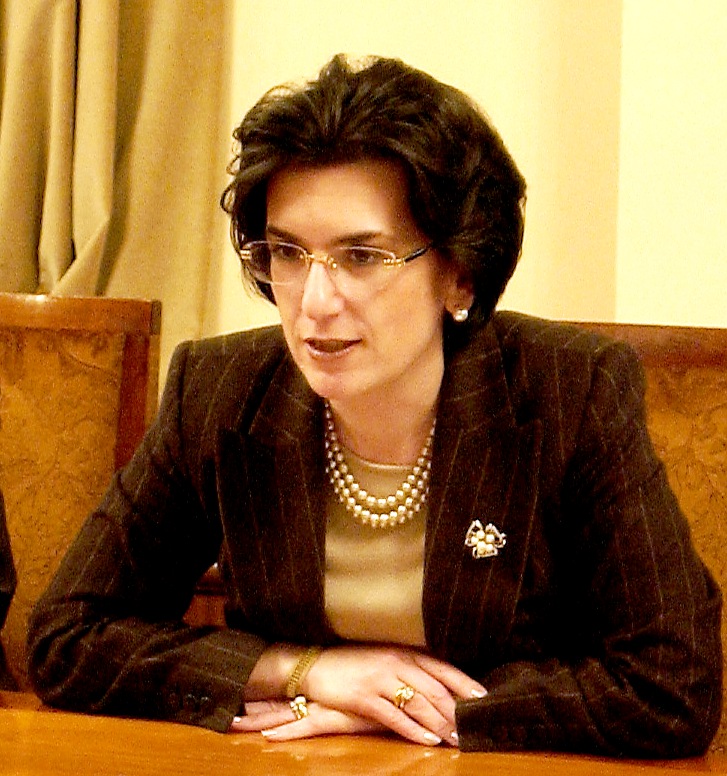
Radical Opposition Threatens to Disrupt Georgian Transportation
Publication: Eurasia Daily Monitor Volume: 6 Issue: 98
By:

Attendance at opposition rallies in Tbilisi has dwindled to a trickle, with only a few hundred protesters manning round-the-clock pickets for a standard fee of 30 Lari, plus food rations per night. The intention to bring opposition protesters to Tbilisi from the countryside has failed thus far, despite several announcements within the past fortnight by opposition leaders through the mass media -to which the same leaders allege that they are denied access.
Hoping to re-energize the anti-government protests, radical leaders have considered extending the traffic stoppages, from Tbilisi’s main avenue into the country. They threaten to cut off Georgian transport arteries, unless (or until) President Mikheil Saakashvili agrees to resign and call snap parliamentary and presidential elections. Given the transportation infrastructure within Georgia, the east-west arteries serve both domestic and the international trade at the same time. The opposition’s declared intentions threaten not only the national security and economy, but also strategic interests of neighboring countries and the European Union, as well as long-declared (though recently lethargic) United States policies.
Brussels and Washington seem to be looking away for now. Even if Georgian oppositionists lack -as may well be the case- the organizational capacity to disrupt transportation in any systematic or continuous manner, just a few cases of disruption might sap international business confidence and transport development projects. By eroding the Western stake in Georgia, such disruption will play directly into Russian hands. In this context, Moscow has recently begun channelling funds to Georgian opposition groups through Russian-based, grey-economy Georgian businessmen.
On May 4, former parliamentary chairwoman Nino Burjanadze (who has become one of the most intransigent, and reputedly the best-financed by far, among the opposition leaders) threatened to call on opposition supporters to block the central highway near Tbilisi with their cars as from May 5, for one hour at a time (24 Saati, May 14). Action was attempted briefly on May 6 at one spot near Tbilisi, but there was no immediate follow-up. New Right leader Davit Gamkrelidze declared that oppositionists were prepared to expand the action after May 8 country-wide for an indefinite duration (AFP, May 4).
On May 11 one of the protest leaders, Gubaz Sanikidze, told the rally in Tbilisi at the parliament building, "We have our action plan and you are more or less familiar with it. It is united popular insubordination and the closing of roads." Elaborating, Gamkrelidze announced: "If necessary, we will close off the highways, close down the ports, railroads, and we will show them [government] that we do not intend to turn back and we will fight until the end." Addressing the same rally, Burjanadze warned, "We will close off the roads, go the regions, bring people to their feet, gathering up every single person and we will chase Saakashvili out of this country" (Rustavi-2 TV, May 11). In response Internal Affairs Ministry senior official Shota Utiashvili warned, "If we see long-term blockades of roads and railways, we will have to take action to open them" (AFP, May 13).
On May 19, protesters blocked for one hour the Kakheti highway at its starting point near Tbilisi, just outside the new Internal Affairs Ministry building on the city’s outskirts. The stoppage caused a large traffic jam and scuffles between irate motorists while the police -under strict orders- did nothing. Opposition leaders at the scene, including Burjanadze again, described the action on national television as a "warning" of more stoppages to come and a protest against the Georgian "police state" (Rustavi-2 TV, Kavkasia-TV, May 19).
On May 20, radical opposition leaders released a joint statement claiming that the police had confiscated "up to 20" vehicles from leaders and activists of opposition groups. In response they warned that they will start picketing the central highways on May 21 (Rustavi-2 TV, May 20).
Railroads Director-General Irakli Ezugbaia is concerned at radical opposition statements about blocking railroads. A plan to cause an explosion on the rail track was uncovered in time by the police. Georgia’s east-west railroad carries significant volumes of oil from Azerbaijan and Kazakhstan for export from Georgian Black Sea ports. It also handles a large part of Georgia’s own export and import trade. According to Ezugbaia, international oil companies and other foreign trade partners are reducing their use of the Georgian railroad. While the international economic downturn is one cause of the decline in traffic, the internal political situation is also a contributory factor. The average daily traffic has dropped by 35 percent since April 9 when the radical opposition launched its protests, Ezugbaia said, asking the opposition to stop threatening the safety of transport (Rustavi-2 TV, May 20).
In televised statements on May 17 and 19 -the latter in Poti harbor, the western terminal of the railroad and highway- President Saakashvili noted that disorder and traffic stoppages in Tbilisi and threats of their extension are damaging national and international economic interests. "I will do my utmost so that no one in Georgia will ever again be able to close off roads, declare a blockade on railroads, or otherwise impede our development," he vowed. Georgia will not be turned into some "banana-republic with coups and elections every year" (Rustavi-2 TV, May 19).




